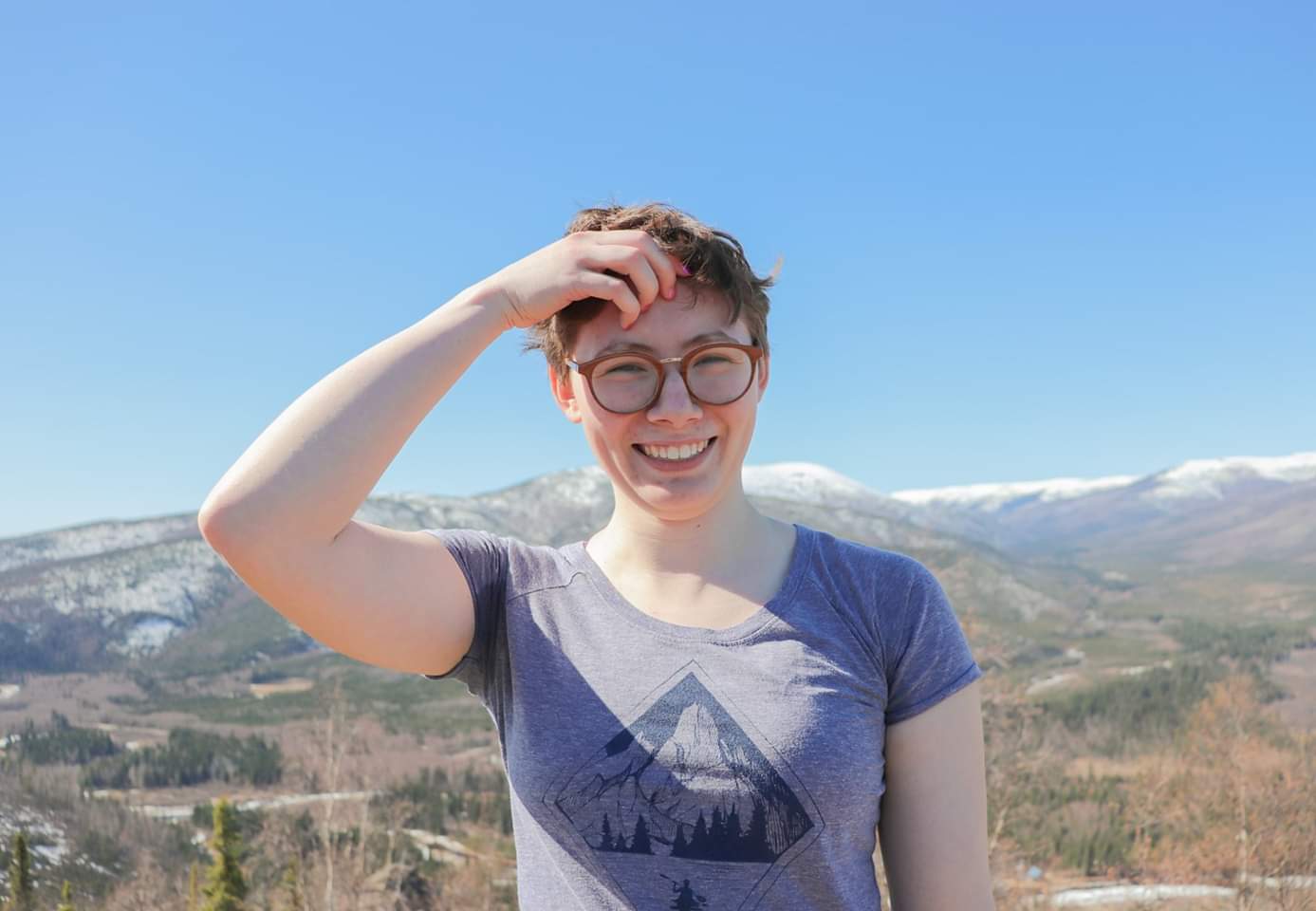By CIRI summer intern Ainsley Fullmer

CIRI descendant Rachel Crosley dedicates two hours per week to the Fairbanks, Alaska, chapter of Girls Who Code, a nonprofit organization that seeks to support and increase the number of women in computer science. “The girls are really inspiring and talented and smart, and the problems they’re tackling are pretty complex,” she enthuses.
Rachel could just as easily be describing herself.
A computer science major at the University of Alaska Fairbanks (UAF), Rachel is pursuing a dual B.S./M.S. degree and is the only woman in her class of 35 students. 2019 marks her second year as a CIRI summer intern. She was personally invited back this year by the head of the Information Technology (IT) department to help market Granite, CIRI’s shareholder records management system.
Rachel is connected to CIRI through her paternal grandfather, original enrollee Britt Crosley, who served on the CIRI Board of Directors from the early 1970s through the late 1980s and also served as the company’s chief financial officer for a time. Her family is of Alutiiq descent and hails from the Ninilchik area. Rachel grew up in Wasilla, Alaska, the oldest of two daughters. She decided to attend UAF because, “it was far enough away from home that I could be my own person, but close enough that, if I wanted to go home, I could.”
A serious and math-minded student, Rachel had originally set her sights on a career as a mechanical engineer. “When I went to college, I was like, ‘I’m going to be a mechanical engineer. I don’t really know what that is, but everyone says I’m good at math, so I should do it,’” she laughed. “And then I hated mechanical engineering, but I took a computer programming class for that major.
“Programming was super frustrating; I was not good at it,” Rachel recalled. “But it felt so good when I finally figured stuff out that I knew I wanted to keep doing it. And then I discovered there was a whole major (computer science) dedicated to it.”
Today, Rachel is enrolled in UAF’s competitive B.S./M.S. program, which allows computer science majors of junior or senior standing with a GPA of 3.25 or above to pursue their bachelor’s and master’s degrees simultaneously. She expects to graduate in spring 2020.
“In the winter, Fairbanks is really cold and miserable,” Rachel laughed. “If the northern lights are out, I’ll stick my head out a window, but I’m not one to go tromping through the woods at 50 degrees below zero looking for them. But at the same time, Fairbanks is a great place to live and go to school. There’s an active arts and culture scene, and people are supportive of those types of activities. You see young people—artists, musicians—with so much opportunity because that support is there.”
Rachel may be the only female computer science major in her class, but she’s working to change that. “In the entire major at UAF, I can name three other women. I’ve been lucky; I haven’t encountered much sexism. But gender disparity is an issue.”
According to the Bureau of Labor Statistics, computer science research jobs are projected to grow 19% by 2026. Despite the high job demand, computer science remains a male-dominated field, with women earning a mere 18% of the computer-science bachelor’s degrees awarded in the U.S.
Girls Who Code, an organization that teaches computer science skills to nearly 200,000 girls nationwide, “is a super cool program to be involved with,” Rachel said. “It’s a free after-school club, and the girls pick their project and decide what they want to do, whether it’s a website or a game or object technology. I help them with their projects, of course, but we end up discussing some deep stuff too, like gender/racial diversity and equity. I wish the program had been around when I was a kid.”
In 2018, at the behest of her father, Rachel applied and was accepted as a CIRI summer intern. “The CIRI IT department is really great, and everyone at the company is super nice,” she said. “I thought I’d be fixing computers and fielding help-desk tickets, but I started working closely with Andrea Koleszar (senior manager, application development) and gained some good programming experience. When Keith (Ziolkowski, senior director, CIRI IT) emailed me this spring— ‘Granite is taking off, we had five clients last year and now we have 20, we could use your help again’—I was so excited to come back!
“The internship is totally worth it,” Rachel continued “It might seem like a big time commitment, but 12 weeks goes by so fast. You’re busy, but you’re here to learn and can work at your own pace. Last year, on my first day, Keith asked me, ‘What do you want out of this?’ Everyone is committed to helping you succeed.”
As for post-college plans, Rachel has her sights set on becoming a game designer. “I played ‘Never Alone’ last summer, and it was awesome,” she enthused.
The game, which was developed in partnership between CIRI-affiliated nonprofit Cook Inlet Tribal Council and a New York-based video game developer, is set in the harsh but beautiful Arctic, where the environment becomes part of the game. Players solve puzzles that require two characters to work together to progress through levels that feature interviews with Elders and traditional Inupiaq art and language.
“It’s such a cool idea, and they did it so well,” Rachel said. “The music, the language, the story, bringing traditional Alaska Native stories to life—I want to see more of that in video games.”



